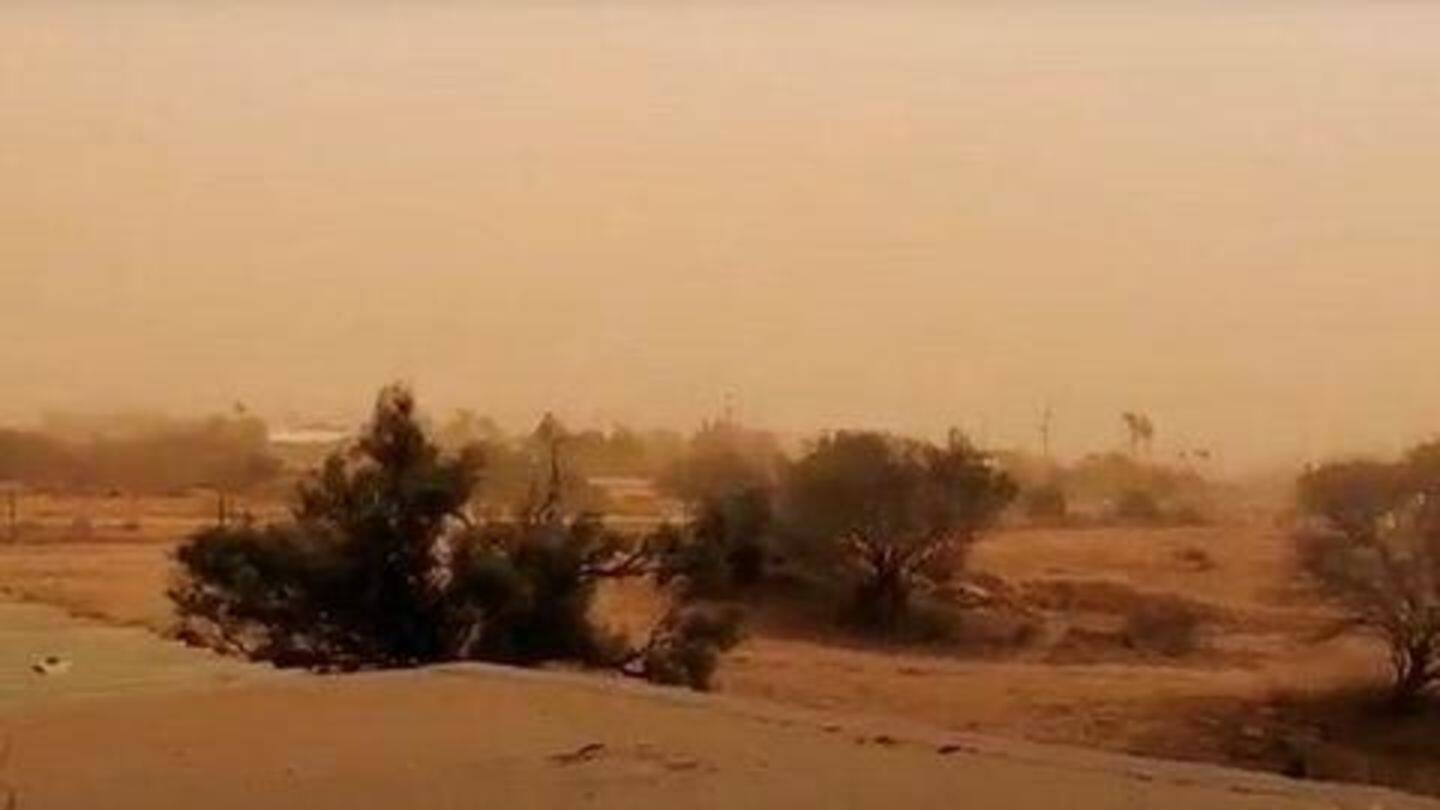
50,000 Australian homes without power as 'once-in-a-decade' storm hits
What's the story
Around 50,000 homes in Western Australia were left without power on Sunday as the state faced a rare storm, described as a "once-in-a-decade" event.
Early Monday, Cape Leeuwin recorded wind speeds up to 132 km/hour, the strongest gusts in May in about 15 years, according to the Australia Broadcasting Corp.
The storm left trees uprooted and damaged the roofs of many homes.
Storm
Remnants of Cyclone Mangga led to storm
The storm started when remnants of the ex-tropical cyclone Mangga combined with a cold front.
Many areas on the west coast of Australia recorded the highest tides of the year. The storm raised dust across Gascoyne and Central West, blanketing many towns including Geraldton.
The extreme weather peaked on Sunday when 62,000 homes were left without power.
Details
20,000 people in south, 13,000 in Perth without power
According to Western Power, as of 6:30 am on Monday, 20,000 people were without power in the south (mostly concentrated in Margaret River and Dunsborough), along with 13,000 people in Perth.
Western Power said, "Kalgoorlie has 15,000 homes and businesses impacted by storm outages after a shed was blown into one of our substations in the area."
Forecast
Meteorologists issue flood warning in Perth
Expecting high tides along the coast, the Bureau of Meteorology has warned about possible flooding in Perth on Monday.
Waves of more than eight meters were also expected in the south-west.
Pilbara and western Kimberley coastal areas are likely to face rainfall of 20-40mm, with isolated falls of up to 100mm in coastal areas from Cape Leveque and Broome down to Kalbarri.
Forecast
Storm to move southwards; to ease overnight
Bureau of Meteorology duty forecaster Bob Tarr said the wild weather would move southwards on Monday afternoon and proceed to ease overnight.
Tarr said the weather warnings are likely to be lifted by Tuesday morning.
Meteorologist Helen Reid said, "Tomorrow and into Wednesday that low will weaken and move further east. That will mean the winds will be a little less of a problem."